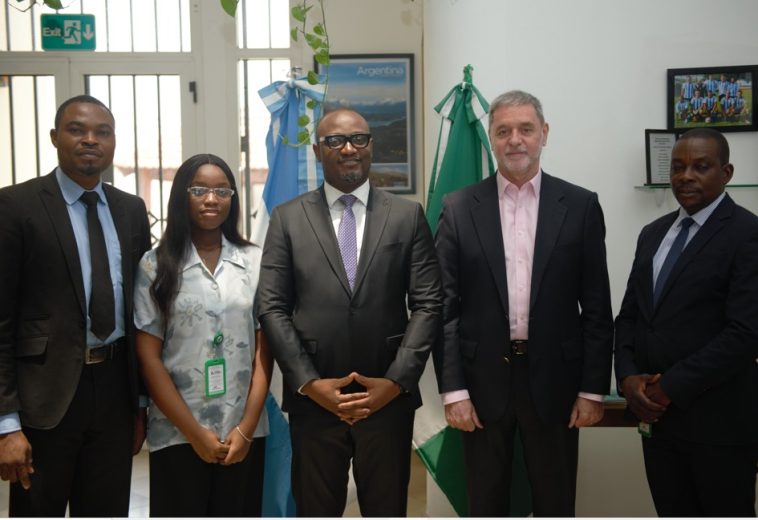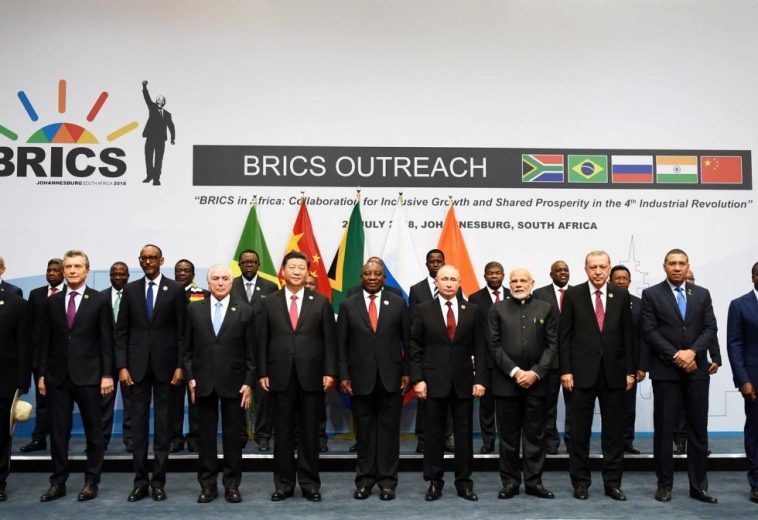These three words of advice were given to the new President of the World Bank Group Ajay Banga by his predecessor David Malpass when he took over the job.
It’s easy to see the wisdom of these three words as the global economy faces recession and inflation after the pandemic, a climate emergency, and a food and energy crisis following Russia’s invasion of Ukraine which also threatens global security.
In Africa, all these challenges are felt intensely. We can add to that list the problem of deepening debt, which is crippling many of Africa’s economies, poverty which holds back development; and a coming population explosion as urgent crises to be tackled.
All these challenges require immediate responses, so it’s no wonder the advice that “time is short” will drive President Ajay Banga’s first policy decisions as World Bank President. And it’s no wonder that he’s determined to hit the ground running.
On his first day on the job, he sent a memo to his almost 19,000 staff warning them that decades of hard-won progress by the Bank is now threatened with being eroded: He told them that his vision is “to create a world free from poverty on a liveable Planet:
“We are at a critical moment in the arc of humanity and the planet. The World Bank Group is being asked to lead the way, to double down on development and climate efforts, and to deliver even more impact and results.”
He told them that his vision is “to create a world free from poverty on a liveable planet:
“The Bank’s challenge is clear: it must pursue both climate adaptation and mitigation, it must reach out to lower-income countries without turning its back on middle-income countries, it must think globally but recognise national and regional needs”.
The question now is: where does Africa fit into this mission? He’s already asked his staff to “double down” on development and the climate emergency. That alone should put the continent at the top of his “to-do” list. After all, the climate emergency is already being felt more acutely in Africa than anywhere else on the planet, with extreme weather conditions already bringing droughts, floods, and crop failures, bringing food insecurity to millions.
In his memo to staff, he estimated that annual investments of trillions of dollars were needed to arrest global warming.
Mr. Banga has also pledged to scale up the Bank’s lending to address food security and future pandemic preparedness, along with building up human capital, fighting inequality and poverty, protecting the environment, promoting global conversation, and delivering long-term solutions to all these challenges. Again, Africa would be a good place to start tackling these issues.
The World Bank is already well aware of Africa’s needs. A recent Bank Report estimated that almost half of the countries in Sub-Saharan Africa are either already in debt distress or are at high risk of falling into debt distress. Zambia defaulted on its debt in 2020, followed by Ghana last year.
Ghana is a prime example of what Mr. Banga calls the need for long-term solutions to support growth in its economy in order to pay off its debt. The Bank aims to improve Ghana’s investment climate so that its economic stability will attract more foreign direct investment. Ghana stands ready to receive $300 million from the World Bank, dependent on Ghana’s government being able to adopt the Bank’s proposed reform package
Meanwhile, the Bank’s 2023 Economic Outlook for Africa reveals that although growth across the continent is expected to be 3.1% this year, inflation is much higher and is in double digits in many parts of the continent.
Last week, the Bank’s Africa chief economist, Andrew Dabalen, said that the continent was falling into a form of stagflation with low growth and high inflation.
To address this crisis, the Bank has already announced a $12 billion package to provide lending and grants to the poorest and weakest economies, many of them in Africa. Another tranche of funding is due to be pledged this December for the Bank’s crisis response window, along with further resources that will be made available in early 2024.
Africa has traditionally benefited from the World Bank’s International Development Association (IDA), which exists to help the world’s poorest countries and reduce poverty y providing zero- to low-interest loans or credits for programmes that boost economic growth, reduce iinequalities,and improve people’s living conditions.
Last year, the IDA’s commitments totaled some $37.7 billion, with African countries receiving almost three-quarters of that. It includes funding for climate change, gender and development, conflict resolution, job creation, and economic transformation in fragile states.
In the words of the President of Niger, Mohamed Bazoum:
“IDA is a priority for many African countries, mine included. We turn to IDA for our development agenda”.
President Macky Sall of Senegal also believes in the importance of the Bank’s IDA:
“It is an extremely important instrument for African countries and for developing nations as a whole because of the types of loans that are made available to our states.”
The evidence of the IDA’s work is apparent across the continent. In Ethiopia, the Bank is supporting the national Plan through a $375 million IDA credit which is helping to bring electricity to a million homes and piloting new approaches for off-grid solutions.
Much of the IDA’s projects now concentrate on climate adaptation to address the climate crisis. In thirteen countries in West Africa, the Bank’s Agricultural Productivity Programme is helping develop climate-smart varieties of crops like rice, bananas, plantain and maize.
It’s estimated that around 70% of Africa’s farmers are women, and agriculture remains the continent’s biggest employment sector by far. That means that the World Bank also places female upliftment as a key policy objective to achieve gender equality across the continent.
For example, the Bank supports a project in the Sahel to give local women access to sexual and reproductive health services, for more than 200,000 girls across Burkina Faso, Chad, Cote d’Ivoire, and Mali. Mauritania and Niger have benefited from new schooling opportunities. In Togo, during the height of the pandemic, some 400,000 women were given cash transfers to provide financial support when jobs were drying up.
The Bank sees gender equality as a sure-fire route out of poverty in Africa.
However, Mr. Banga accepts that all these gains could be eroded if Africa is not at peace. That’s why the IDA is also working in the continent’s conflict areas, like the Sahel, Lake Chad, and the Horn of Africa, to support refugee populations.
Peacebuilding requires good governance and stable employment, Unemployment and abject poverty encourage young people to get recruited into terrorist gangs and militias that engage in conflict.
In Burkina Faso, it’s supporting national government attempts to strengthen municipal capacity-building in thirteen regions, while in CAR, a cash-for-work programme is a peace-building programme to promote social cohesion and economic activity, supporting more than 41,000 vulnerable individuals to secure jobs and address the growing gaps in health, education, and resilience.
In the Republic of Congo, this means empowering thousands of young people with skills training for jobs in mechanics, carpentry, hospitality, electricity, plumbing, baking, and welding.
The scale of the challenges is enormous. The Bank estimates that during the COVID-19 pandemic, some 97 million people fell back into poverty as jobs were lost and economies stalled. The IDA’s Jobs and Economic Transformation Agenda aims to restore these lost livelihoods by adopting digital technology, expanding broadband access, investing in agriculture and food security, and delivering sustainable infrastructure.
A good example is Togo, where 14,000 young people have received micro-entrepreneurship training and start-up grants to start their own businesses.
As a former CEO of Mastercard, Mr Banga is a technocrat. He emphasises the role of technology in helping to tackle the challenges facing the world. He also talks about the role of the private sector in mobilising capital resources for significant economic development and mobilising private sector ingenuity and innovation.
He was born in Pune, India, and attended Delhi University, where he was awarded a Bachelor’s degree in Economics. He went on to graduate from the Indian Institute of Management in Ahmedabad. He became a US citizen in 2007 and worked at Nestle and Citigroup before becoming the Chief Executive at Mastercard for 11 years.
Among a range of other roles, he’s also served on the boards of Kraft Foods and the American Red Cross. He was also involved in the launch of PepsiCo’s restaurant and fast-food franchise chain in India.
Banga was elected unopposed for a five-year term as World Bank President by the Bank’s Board of Governors in May 2023 after being nominated by US President Joe Biden.
There is little doubt that the World Bank has helped hundreds of millions of people escape poverty through the creation of jobs, and given them access to clean water, better roads, electricity and improved nutrition. But the question remains whether this support is sufficient for Mr. Banga to transform the continent’s fortunes. And remember his predecessor’s words: “Time is short” will still be ringing in his ears.
He commands a team of almost 19,000 staff and consultants in 120 offices around the world and sits on an investment chest of $440 billion. The challenges of rising debt and the climate emergency are urgent crises and Mr Banga needs to tackle them immediately before both get worse.
The World Bank’s mission has been made even more urgent by Russia’s invasion of Ukraine. It may feel a long way away from Africa but that war’s impact is already being felt across the continent with food and energy supply disruptions.
On the continent itself, Russia’s attempts to foster conflict and undermine democracy in Africa through the private Wagner Group mercenaries are also disrupting hopes to build stable and peaceful societies.
Russia’s invasion, the bombing of civilians, and the kidnapping of Ukrainian children have already disrupted World Bank’s support for Africa. Many donors have chosen to prioritise funding for Ukraine. This year direct funding support to sub-Saharan Africa has fallen by 8% while funding to Ukraine has grown by the same amount.
That means fewer resources to tackle Africa’s problems, and in the short-term, the energy and food insecurity in the wake of the Russian invasion has increased hunger and poverty in Africa, along with reducing funding for programmes fighting inequality in health, education and planning for future pandemic preparedness.
It also places Africa on the receiving end of a new scramble for Africa as US hegemony in the world is increasingly challenged by a range of actors seeking to create a “new world order”.
Russia supports anti-western movements across the continent from the Sahel in the west to the Horn of Africa in the east. Meanwhile, US-China rivalries threaten to make Africa a battleground for a new emerging and growing super-power rivalry.
The World Bank risks getting caught up in these new political cross-currents. It has traditionally been seen as flying the flag for a pro-Western American free-market ideology which is itself being challenged.
China and other emerging economies have sought to set up alternative institutions to provide a competing source of financing to the developing world. More may emerge on these attempts to set up a so-called BRICS Bank when the BRICS nations of Brazil, Russia, India, China and South Africa gather in Pretoria later this year.
Some commentators see an opportunity for Africa in this challenge to the existing world order. They see an Africa as able to benefit from this new superpower rivalry between the US and China by playing one superpower off against the other. Others feel such rivalries can only lead to further global instability which will threaten inward investment into the continent — and that Africa’s development and poverty eradication aspirations will be the loser.
As Mr Banga sifts through his bulging In-Tray of these urgent challenges he will surely reflect on the predecessor’s words that “Time is Short”


